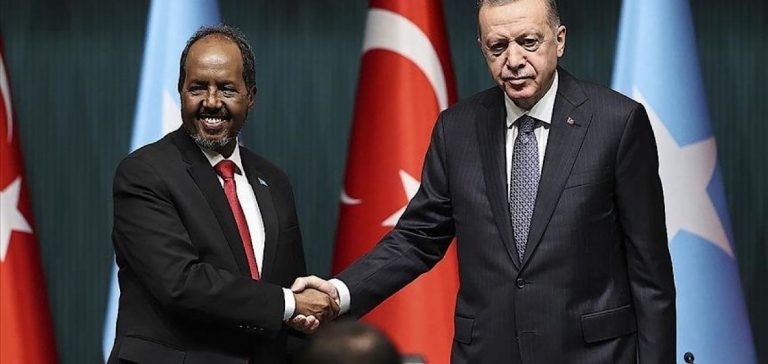The Turkish mission to explore hydrocarbons in Somali waters marks a major turning point for Turkey’s energy and geopolitical strategy. This initiative is part of a bilateral agreement signed in August 2024, which grants the company Turkish Petroleum exclusive exploration rights over three offshore blocks totaling 15,000 square kilometers. Turkey has dispatched the seismic research vessel Oruç Reis to carry out this seven-month mission, aiming to identify oil and natural gas reserves in Somali waters.
Since the historic visit of Turkish President Recep Tayyip Erdogan to Mogadishu in 2011, Turkey has progressively consolidated its relations with Somalia, positioning itself as one of its main economic partners. This rapprochement has been manifested through investments in various sectors, including health, education, and more recently, energy and defense. The current mission represents not only an economic development opportunity for Somalia but also a geopolitical lever for Turkey, which seeks to diversify its energy sources while increasing its influence in the Horn of Africa region.
Energy Potential and Economic Stakes
Somalia’s hydrocarbon resources, largely unexplored so far due to conflicts and political instability, could prove substantial. Preliminary seismic studies indicate that the Somali region could contain up to 30 billion barrels of oil and approximately 100 trillion cubic feet (tcf) of natural gas. The sole area of the Somali basin could hold more than 40 tcf of gas, positioning Somalia as a future key player in the African energy industry.
For Somalia, the economic benefits of these resources could be substantial. The International Monetary Fund (IMF) estimates that if these resources are optimally exploited, they could generate annual revenues between 5 and 10 billion dollars for federal and regional governments, while increasing the country’s GDP by 7 to 10% per year. This financial influx could transform Somalia’s economic landscape by improving infrastructure, stimulating employment, and reducing dependence on energy imports.
Geopolitical Consequences
On the Turkish side, this mission holds strategic importance. It allows Ankara to extend its maritime presence beyond its traditional operational zones (Mediterranean, Black Sea), thereby reinforcing its position as a regional power. In addition to the Oruç Reis, Turkey has deployed an escort fleet composed of three ships and several frigates from the navy to secure operations. This reflects Ankara’s commitment to securing its energy interests against potential threats such as terrorism, piracy, or interference from foreign powers in the region.
Security and Challenges
Despite these opportunities, the security environment remains a significant challenge. Somalia faces endemic security issues, notably the threat of the terrorist group Al-Shabab. To mitigate these risks, Turkey has not only invested in Somalia’s defense sector but has also built military infrastructures such as the TURKSOM training camp, where it has been training Somali forces since 2017. The deployment of the Turkish navy and the strengthening of Somalia’s capacities aim to ensure the security of this operation while supporting long-term regional stability.
Perspectives
If this mission is successful, Somalia could emerge as a major energy player, rivaling other East African producing countries such as Mozambique and Tanzania. For Turkey, this would pave the way for similar partnerships in other underexploited regions, while consolidating its position as an independent energy supplier on the international stage. However, future successes will depend on the ability of both nations to overcome security obstacles and manage hydrocarbon revenues transparently, to ensure sustainable and inclusive development.





















